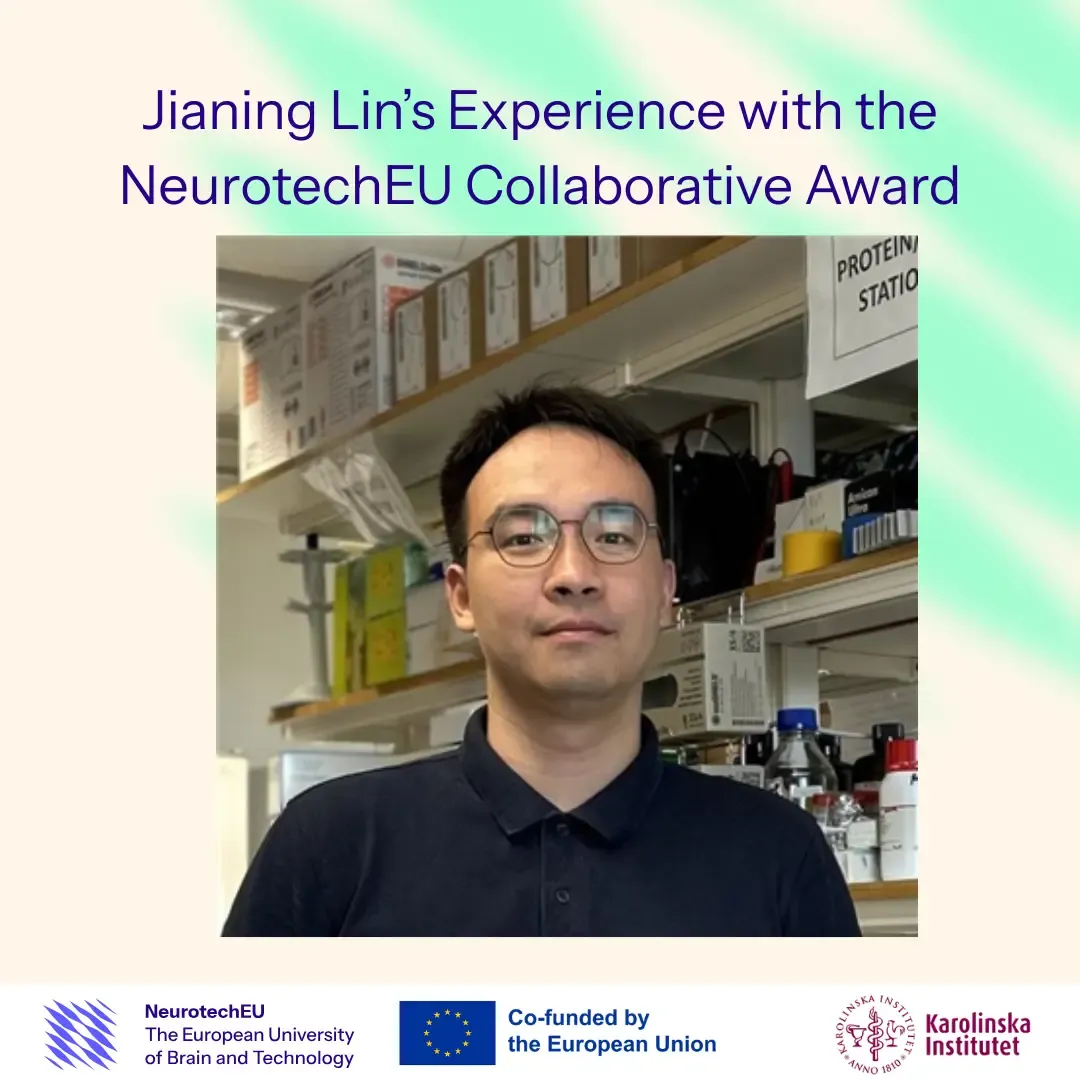Empowering early-career researchers with the NeurotechEU Collaborative Award

As part of the KI NeurotechEU Collaborative Award 2025, PhD student Jianing Lin from Karolinska Institutet undertook a valuable educational visit to Prof. Ruiz de Almodóvar’s lab at Rheinische Friedrich-Wilhelms-Universität Bonn in Germany. Supported by the NeurotechEU alliance, this short-term exchange provided hands-on training, networking opportunities, and the foundation for a new cross-institutional collaboration in the field of neurovascular biology.
Hands-on learning: Mastering RNAscope technology
Jianing’s visit focused on acquiring expertise in RNAscope, a powerful RNA in situ hybridization technique known for its sensitivity and specificity in detecting mRNA in tissue samples. With the guidance of researchers and technicians in the host lab, Jianing took part in comprehensive training, while also contributing to discussions on troubleshooting and optimizing protocols across various sample types.
“Maintaining RNA integrity in small and fragile spinal cord samples was challenging,” Jianing shared. “By working closely with experienced colleagues and maintaining a strict RNAse-free environment, we optimized the sample preparation process and preserved tissue quality.”
Building connections and scientific confidence
In addition to technical training, Jianing actively engaged in lab meetings and scientific discussions, further broadening his understanding of neurovascular biology. “This opportunity allowed me to interact with researchers from different backgrounds and extend my professional network,” he said. “It also strengthened my confidence in my PhD project and reinforced my interest in pursuing a research career focused on the molecular mechanisms in amyotrophic lateral sclerosis (ALS).”
From training to implementation: Strengthening local expertise
Back at Karolinska Institutet, Jianing is now working to implement a standardized RNAscope workflow in his home lab, including adapting protocols to various tissue types and combining RNAscope with immunostaining methods relevant to his research.
His supervisor, Dr. Sebastian Lewandowski, emphasized the broader impact of Jianing’s training: “Jianing’s experience in RNAscope will be beneficial not only for our group but also for neighboring labs within the division. It has already led to a new collaboration with Prof. Ruiz de Almodóvar’s lab, and we expect to contribute to each other’s manuscripts in the near future.”
The value of NeurotechEU for research and training
From a principal investigator’s perspective, NeurotechEU provides meaningful opportunities for early-career researchers to gain practical skills, build professional networks, and generate preliminary data that can support future funding applications.
“The format is extremely useful, and the level of funding is appropriate,” said Dr. Lewandowski. “If possible, having this type of program available once per semester would further accelerate skill sharing and collaboration between labs.”
A model for collaborative research mobility
Jianing Lin’s experience illustrates how NeurotechEU supports both personal and professional growth for young researchers. From mastering advanced lab techniques to establishing new collaborations, this initiative plays a vital role in shaping a connected and innovative European neuroscience community.
